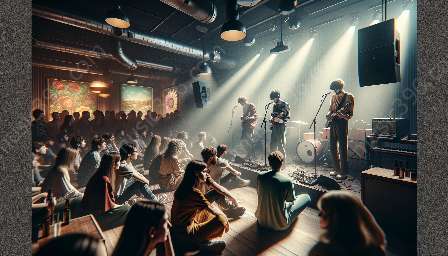Folk rock music, a genre that emerged in the 1960s, has left a lasting impact on society and music culture. This unique blend of folk and rock elements has contributed to significant social and cultural changes, influencing identity, political movements, and the evolution of rock music. Let's dive into the rich history and explore the profound effects of folk rock music.
The Birth of Folk Rock
Folk rock music originated as a response to the social and political climate of the 1960s. Artists sought to combine the storytelling nature of folk music with the energy and instrumentation of rock. This fusion created a new sound that resonated with a generation seeking authenticity and connection.
Engagement with Social Issues
Folk rock music became a powerful platform for addressing social issues such as civil rights, war, and environmental activism. Artists like Bob Dylan, Joan Baez, and Neil Young used their music to reflect the societal tensions and advocate for change. The lyrics and melodies of folk rock songs served as anthems for protest movements and resonated with individuals seeking to challenge the status quo.
Cultural Identity and Expression
The genre also played a significant role in shaping cultural identity and expression. Folk rock artists often explored themes of heritage, tradition, and community, connecting listeners to their roots and shared experiences. This emphasis on authenticity and storytelling allowed for the preservation and celebration of diverse cultural narratives, contributing to a more inclusive and enriched music landscape.
Influence on Rock Music
Folk rock music significantly influenced the evolution of rock music. The incorporation of acoustic instruments and introspective lyrical themes by bands like The Byrds and The Mamas & the Papas paved the way for a new wave of rock experimentation. This fusion of folk sensibilities with rock arrangements broadened the sonic palette of the genre and inspired future musicians to explore diverse musical influences.
Legacy and Contemporary Impact
The legacy of folk rock music continues to resonate in contemporary music and society. Artists such as Mumford & Sons and The Lumineers have reignited the genre's sound, captivating audiences with its timeless appeal. The introspective and reflective nature of folk rock continues to offer a platform for storytelling and introspection, addressing modern societal concerns and fostering a sense of connection and unity.
Conclusion
Folk rock music has undeniably made a lasting impact on society and culture. By engaging with social issues, shaping cultural identity, and influencing the evolution of rock music, this genre has left an indelible imprint on the musical landscape and the collective consciousness. Its legacy continues to inspire and resonate with audiences, reaffirming the enduring power of music to provoke change and foster a sense of belonging.


















































